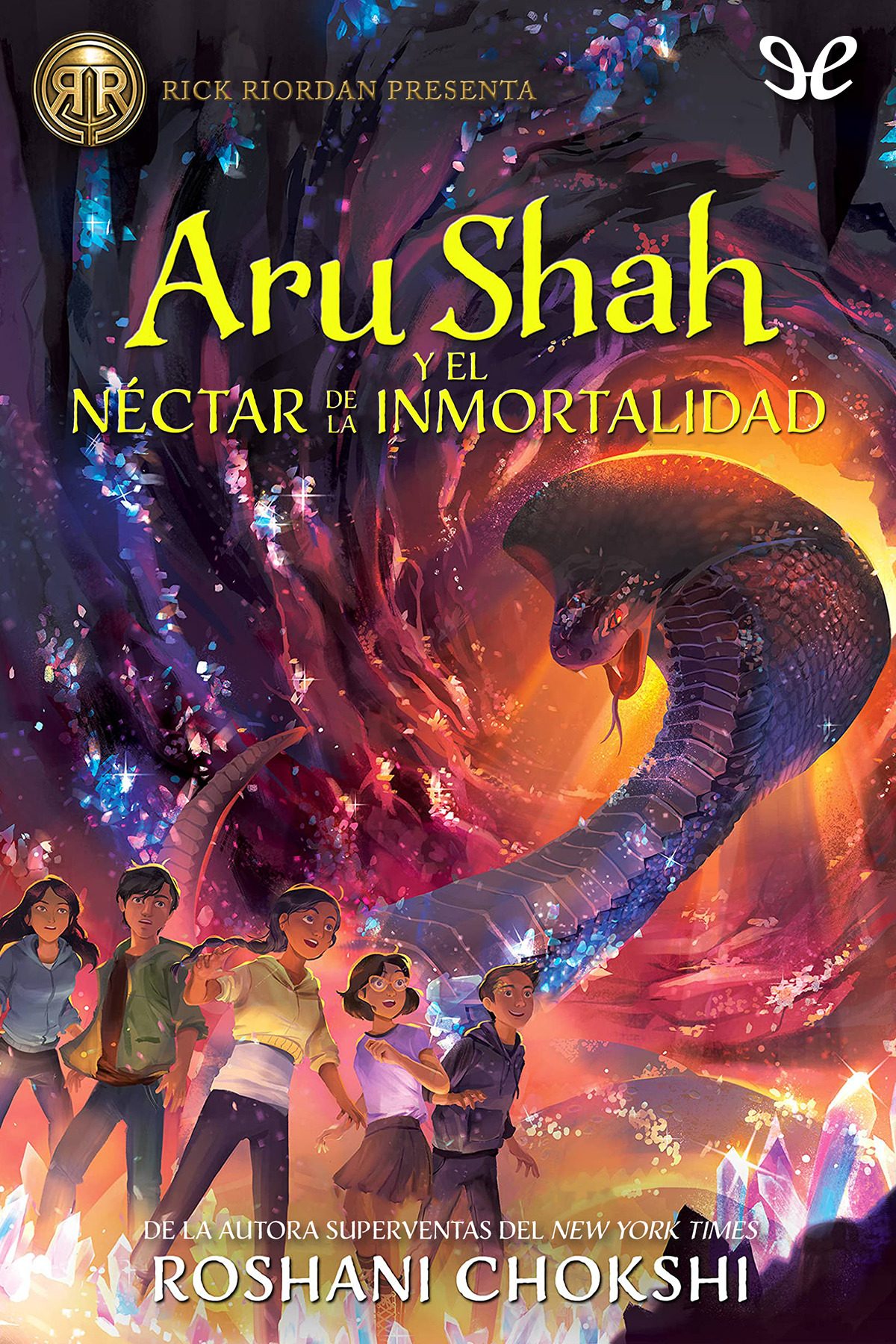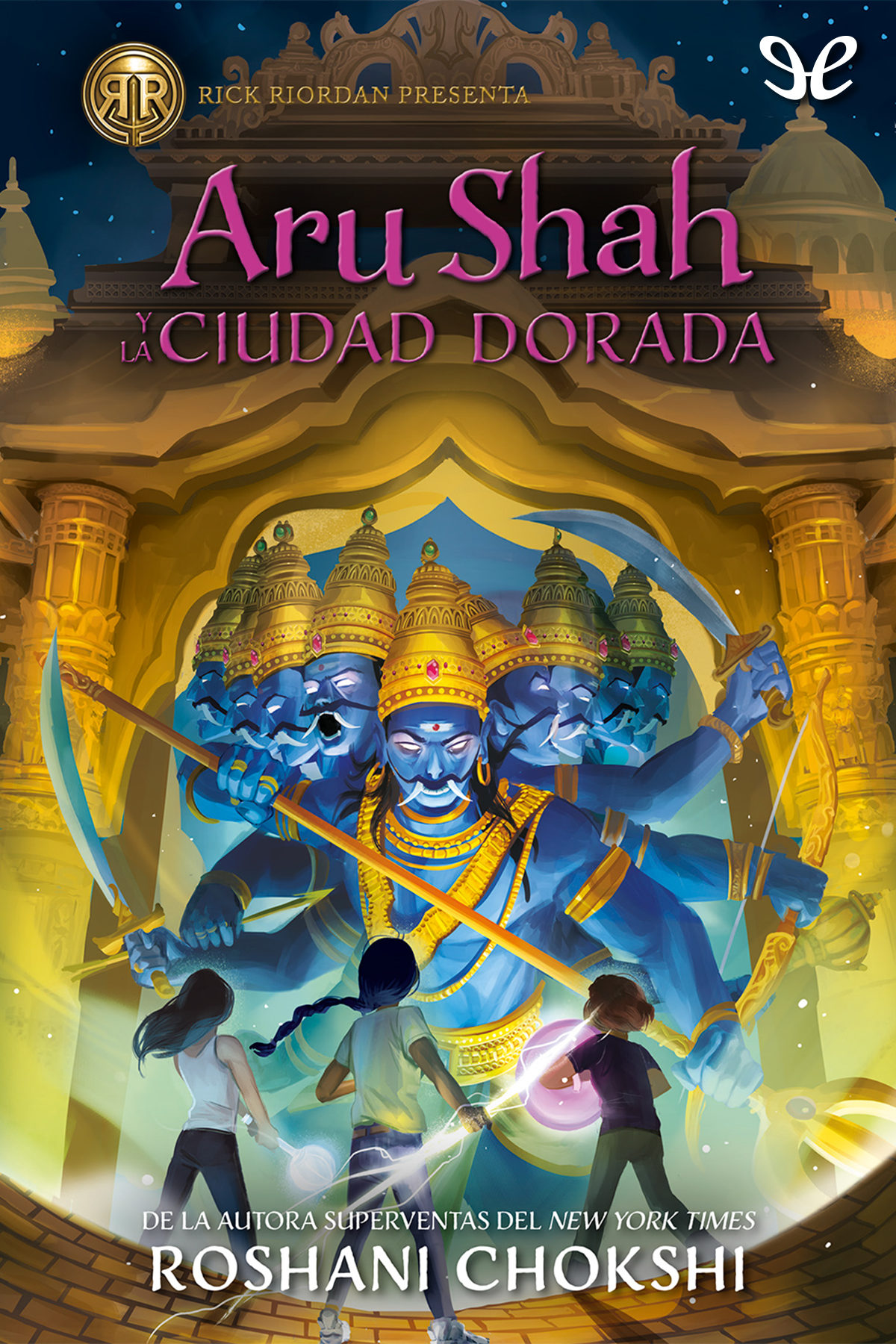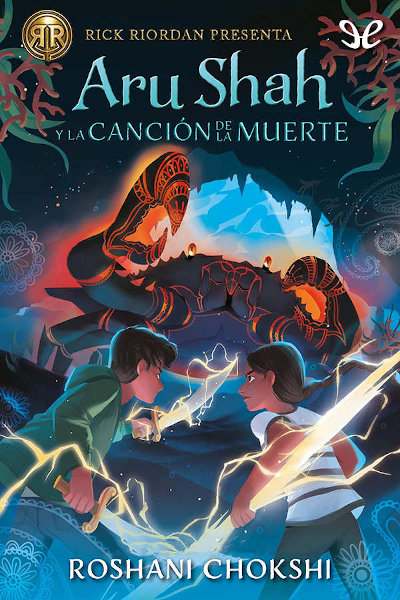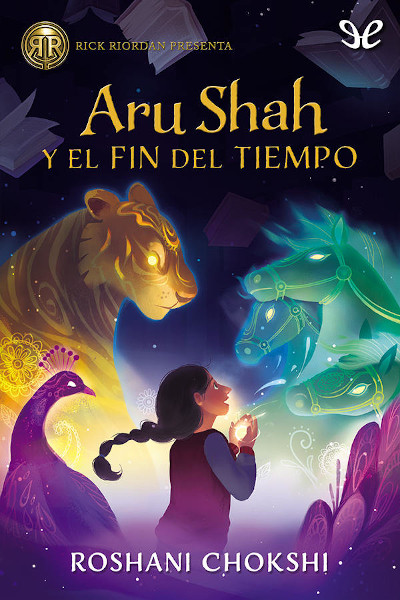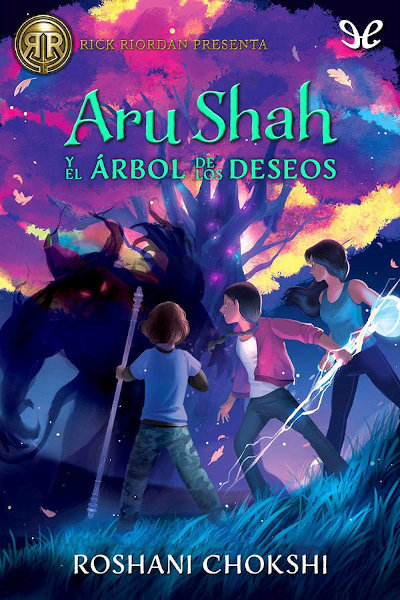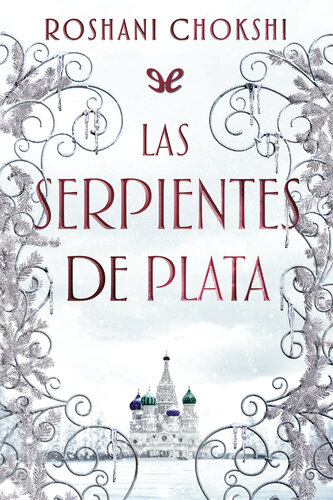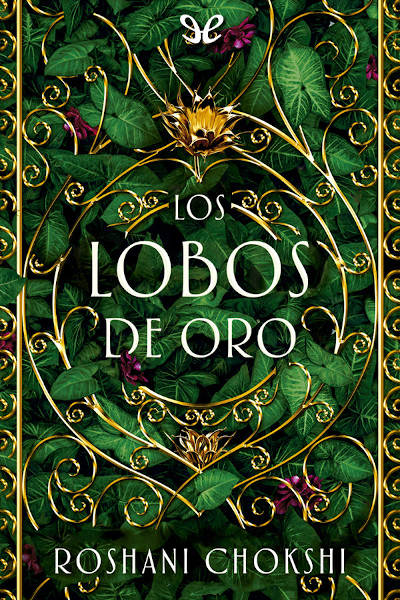oleebook.com
La casa de los sueños de Roshani Chokshi
de Roshani Chokshi - Género: Ficcion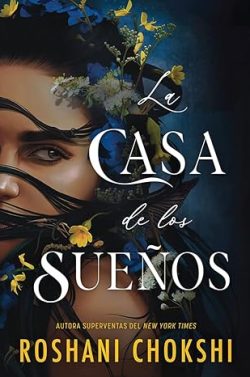
Sinopsis
Érase una vez, un hombre que creía en los cuentos de hadas se casó con una bella y misteriosa mujer llamada Indigo. Él era un estudiante fascinado por los mitos. Ella la heredera de una gran fortuna. Se intercambiaron regalos e historias y creyeron que vivirían felices por siempre jamás Y, a cambio de su amor, Indigo consiguió que su novio le prometiera algo: que jamás husmearía en su pasado. Pero cuando Indigo se entera de que su tía se está muriendo y se ve forzada a acudir junto con su pareja al hogar en el que pasó su infancia, la Casa de los Sueños, comienzan las tentaciones de romper la promesa. Porque en las extravagantes habitaciones y los polvorientos pasillos de esa decadente mansión, merodea la sombra de otra chica: Azure, la mejor amiga de Indigo cuando era niña, que desapareció de forma repentina. A medida que la casa va revelando los secretos de la mujer, su marido deberá elegir entre la realidad y la fantasía, incluso si al hacerlo pone en peligro su matrimonio o sus vidas
Libros Recomendados - Relacionados
Reseñas Varias sobre este libro
i think i d this? i dunno. its really weird, but the writing is quite lovely.
i mean, theres no doubt that RC can weave a tale and this one feels quite experimental compared to her previous books. im not sure i fully understand everything i read, but im walking away feel satisfied?
kinda hard to pinpoint how im feeling about this one specifically, but im interested in seeing what kinds of other adult novels RC will write. i think if youre up for something odd, yet pretty, then this is a book you might want to try.
? 4 stars452 s8 comments s.penkevich1,208 9,595
You never forget the moment when beauty turns to horror.
Hope is a powerful force, pushing us on even when situations seem dire and make us believe that even the impossible is possible. Fairy tales are tiny doorways into the realm of vast possibility, where even a poor kitchen maid can become queen, a king become a beast, and a tiny seed can grow to a magical land amongst the clouds. In the end, a fairy tale is nothing more than a sense of hope, the narrator remarks in Roshani Chokshis The Last Tale of the Flower Bride. They are something that whispers to us that we are extraordinary and teach us the dragons can be killed as G.K. Chesterton once said of fairy tales. However, hope lures and tricks and as folklorist warns, in fairy tales the sweetest tongue has the sharpest tooth. Drawing from an eclectic mix of folklore and fairy tales, such as the story Blodeudd from which the novel gets its name, Chokshi crafts a gothic tale of menace and mystery a modern day fairy tale where everything is either a sign of possible magic or horrific gaslighting sending the characters either to riches or ruin. With gorgeous prose that glistens both a treasure and a threat, The Last Tale of the Flower Bride is a deeply distressing tale that perfectly captures the spirit of fairy tales while examining the lies and hopes we believe, the way wealth can shelter a person even from a sense of humanity, and how there is always a story lurking, ready to ensnare us in its jaws.
If you combed through enough fairy tales, untangled their roots, and shook out their branches, you would find that they are infested with oaths. Oaths are brittle things, not un an egg there is one thing they all share: they must be broken for there to be a story. Only a shattered promise yields a rich, glittering yolk of a tale.
I devoured this book in a single day, realizing it had bewitched my mind and trapped me in its pages as if to devour me in return. Here is the story of a poor professor of fairy tales, named only the Bridegroom, who manages to wed the unfathomably wealthy and mysterious Indigo Maxwell-Casteñada, a fellow lover of tales, who promises him unending happiness and security if he vows to never pry into her past. But when a dying aunt brings them to her childhood home, The House of Dreams, dark secrets reach out to be heard and offer their own rewards if they are unearthed. Will it be a tale Melusine, where a broken vow runs off the beloved forever, or more akin to Eros and Psyche where a betrayal can be overcome. Or will the secrets be irreparably horrifying? It is a novel where the less you know going in, the better as there are some well executed twists and the whole book is dripping in foreshadowing, so Ill avoid spoilers but continue at your discretion. The book rotates between the perspective of the Bridegroom and Azure, a teenage girl who was so close to Indigo they believed they shared a single soul, and as the stories weave we feel the past catching up to the present a scream brewing in our throats.
Our illusions weave roses around us, and when we try to escape, we are met with thorns.
What really makes this story work is how seemingly effortlessly Chonski transports us into the realm of fairy tales. The prose moves with a dream quality to it, shimmering as if capturing the power of moonlight and enticing us further into the dark recesses of the novel. And dark it is, much more than I ever expected, and while this novel disturbed me in many ways I was delighted for it all the while. The tone overwhelms you an enchantment and her offkilter descriptions and observations build an eerie, gothic atmosphere you can get lost in a fog. Birds take to the sky a scream given shape, skies are the color of scraped eggshell and the House groans, gurgles and sighs in all sorts of uneasy personifications. Much of the novel makes you second guess yourself, wondering if we are entering a realm of magical-realismand, truthfully, wanting to believe in it for the sake of some of the charactersbecause the reality could be too horrifying.
The secret to everlasting love was fear. Fear tethered love in place. Without the terror that came from imagining a life without your beloved, there was no urgency in loving them.
Fans of fairy tales will enjoy the frequent allusions and analysis of the genre, with the story stitching together the spirits of many tales such as the aforementioned tales, Bluebeard, and both the German tale Allerleirau as well as the English tale Catskin which Allerleirau is often retitled despite the differences between the two. Catskin will also become a nickname Indigo gives to Azure, much to Azures resentment of it, a prophetic role to fill in order for the two girls to achieve their belief that they are magic beings waiting until the time is right to be returned to their kingdom. In this way the story is able to play with a multitude of tropes as the girls attempt to prove themselves and abstain from becoming too much of this world, fearing they will be a Cast Out Susan, referencing Susan Pevensie who was denied access to Narnia for liking boys and makeup too much.
She looked the nostalgia that settles in your ribs at the end of a story you have never read, yet nevertheless know.
Much in the way fairy tales are easy to relate to and superimpose the messages over our own lives by using archetypal characters and narratives, The Last Tale of the Flower Bride sort of superimposes itself over the genre by incorporating many recognizable archetypes to reconfigure them for its own purposes. Fairy tales are the purest and simplest expression of collective unconscious psychic processes, Jungian psychologist Marie-Louise von Franz writes in The Interpretation of Fairy Tales, they represent the archetypes in their simplest, barest, and most concise form. In this way it is able to dive directly into a sharp, psychological horror by striking at our purest fears of selfhood. Is the person closest to you betraying you and is your whole identity being built around a lie?
Because of her, I believed I was someone who deserved things, someone for whom destiny itself had fashioned a cozy, star-lined pocket, Azure confesses about her lifelong attachment to Indigo,practically living with her in the House of Dreams and isolating herself from peers to be in inseparable duo their classmates fear. However, as the Bridgegroom warns this is why fairy tales are dangerous: their words sneak into your veins and travel into the chambers of your heart, where they whisper of your exceptionalism but we are not exceptional. Indigo is as much of a mystery as the central narrative mystery, and Chokshi is excellent at delivering a sense of unease and often revulsion around her.
[Indigo]was peering straight into something primordial and desperate, where the inscrutable space between stars had once birthed myths and gods, built palaces of story and scripture in which human doubts found a place to rest their weary brows.
Chokshi is at her finest when crafting how Indigo figures into both their lives, brilliantly balancing our uncertainty of her as a rose or a thorn, and a window more than a body orin the tropes of fairy talesa path into the wilderness that may lead you to fortune or fatality.
Hallowed ground was not always a fixed, physical place. Some sacred spaces were indivisible, the taking of them an endless communion that ate of your flesh, drank of your blood, and its grisly alchemy fused itself to the very skin of your soul so that no matter where you were, you would never be without it.
Location is always key in fairy tales, and The House of Dreams and the Otherworldthe secret hangout of the two girlsis stepping into the familiar mystical places of any fairytale. Transformation is always a critical component of fairy tales and locations a castle or forest tend to provide the catalyst for them. As Jack D. Zipes teaches no one gains power over the forest, but the forest posses the power to change lives and alter destinies. In this way we see Indigo and Azure paying tribute to their Otherworld and reading signs in the ways the trees move or the roots reach for them as indications of their transformations. Indigo and I were the Otherworld, and the Otherworld was us, and for as long as we lived, it would live too. Adding to the uncertainty if there is something magical actually happening is the House, another space of transformation, which each character seems to recognize as responding to them and encouraging them on their paths. It is more a living, breathing character than a house, often reminding me of a warmer and welcoming version of the house from The Haunting of Hill House, or is it all in the characters minds? This is contrasted with Jupiters houseAzures lecherous step-father, another classic fairy tale archetypewhich had never been a home at all to her but a moutha place that chewed and swallowed and fed on her so well she couldnt even see how deep she was buried in its belly. These spaces that seem to hunt, seem to dream, seem to offer up possible rewards if only we are pure of heart and motives to grasp our destinies. Or, those who throw back their shoulders and square up to the minotaur, will they quickly learn they were not exceptional as they feared they werent right as their life is pulled from their bodies.
Until that moment, my life has been about the collecting of knowledge. Now the House of Dreams was tempting me with a different ending if only I would do its bidding Thus, all the fair-of-face fools before me, I rejected my knowledge and I believed
Few books have unsettled me quite this one. For those who appreciate trigger warnings, the list is long with this one and the rampant manipulation and gaslighting is intense. As fairy tales are often cautionary and critical of power and obdurate establishment, Chokshi brandishes her literary blade at those whos wealth becomes a fortress protecting them and trampling others underfoot. Even judicial systems can bend to their will, and Chokshi provides a startling character development on how those who want for nothing and know they hold power over others lose a feeling of empathy towards those in their grip. People are playthings or pawns, and someone with a vast imagination and expertise at narratives can construct entire realities for the sake of manipulating others to serve them. As Aunt Hippolyta, also named Tati (a woman rumored to have witchcraft- powers but is reduced to serving Indigo and the estate not un her namesake from Shakespeares A Midsummer Night's Dream who symbolizes the repressed power of women) warns people her can remake reality as they so wish, but we are forced to live in the lands they leave behind. We see this all the time in the world, the wealthy living out fairytale fantasies globetrotting and wanting for nothing while others work themselves into the grave in order to uphold the systems providing wealth for the few and debt for the many. And fear is often used to keep them in line.
But she saw something in me. Something that turned her kiss into a knife that cut me free from the dark.
For how often the term dark fairy tale gets thrown about to mixed results, The Last Tale of the Flower Bride is one that truly deserves the claim. Every fairy tale has blood flecked on its muzzle, Chokshi writes and this story has teeth and horror lurks everywhere for those brave enough to look. I especially enjoyed how much this story captures emotion, especially allowing the Bridegroom to express emotion (which I think is possibly why he is a sympathetic character who is ushered onto a quest to test him instead of some toxic character swallowing emotion away). As dark, eerie and threatening as any quest in these tales of wonder and possibility, and with glittering and gorgeous prose to propel us down the path, Chokshi weaves a tale that will seep into you and transfix you to keep turning the pages.
4.5/5
Too often the truth of a memory lives not in the mind but in the heart, in the subtle and sacred organization that makes up one's identity. But it is a tender place to reach, and I am wounded by touching it.eerie fairy-tale288 s8 comments Robin375 2,807
? 5 stars
They had a seemingly happy marriage: he, a scholar of fantastical stories, and she, Indigo Maxwell-Casteñada, a wealthy heiress with a mysterious past. Despite their differences, the couple found solace with one another, and soon, a bargain was struck in exchange for love that the scholar could have her heart, provided he never inquire into her past. For a time, there was harmony, but when Indigo learns that her estranged aunt is on her deathbed, the couple return to the place where her story began, the House of Dreams. Within the manors walls, winding staircases, and dusty rooms, lie plenty of secrets far too seductive for the bridegroom to resist. As the house reveals the past of another girl, Azure, Indigos childhood friend long gone, he is willing to search between both reality and fantasy to learn the truth about his bride's past, even at the expense of their binding promise.
The Last Tale of the Flower Bride is a luscious gothic feast, interlaced with fairytales, myth, and the treacherous secrets of a marriage. Wandering the halls of the crumbling House of Dreams, Chokshi spins her tale, interweaving fairy tales into the central narrative amidst broken promises and childhood dreams. Testament to everything I love about the gothic, this novel delivers a startling atmosphere, set around a crumbling manor and its ability to suspend the past. Chokshi absolutely dazzles, with poetic prose and the kind of fairytale spinning only she could bring to fruition. Everything inside me yearned to read this exquisite gothic debut from the moment it was announced, to step inside the House of Dreams and deconstruct the secrets hidden within its winding halls. The experience reading this was all the more mesmerizing, as I fell into Chokshis labyrinth of mystery, led deeper between the past of the house by Azures perspective, and the present day, with the bridegroom's suspicions. There was quite the unsettling back and forth with these two, aided by the different tones employed the shift from Azures childhood wonder, to the unfortunate realization that happened on both sides. I still can't wrap my head around how beautifully written this novel is. Lush, dreamy writing is certainly in Roshanis wheelhouse, and this is my favorite of hers thus far. This book twisted my expectations up in knots until right at the very end and each betrayal and exposed truth scored a little deeper. Infused with a kernel of romance, Roshani Chokshi breathes life into this resplendent and tragic gothic story. The Last Tale of the Flower Bride is everything I could possibly wish for in a gothic novel, and the way it slowly approaches the final act will leave you breathless in its downfall.
Thank you to NetGalley and the publisher for providing this arc in exchange for an honest review
Trigger warnings: blood, death, violence, murderall-time-favorites arcs284 s Roshani ChokshiAuthor 45 books10.9k Read
2/11/2022
Here's where I'll be for Flower Bride tour!
Atlanta 2/13
NYC 2/14
Nashville 2/15
Novel Neighbor (VIRTUAL) 2/16
Boston 2/17
Anderson's Bookstore (VIRTUAL) 2/18
Pre-order art prints are available from all the stores except Little Shop of Stories in ATL as we are sold out. I'm very excited to share this story with you and meet you on the road! REGISTER FOR EVENTS HERE
Pre-Order Artwork!
10/8/2022
I wrote this story because I needed it.
Fairytales and myths are vital to our existence. They seek to explain the unexplainable. They offer succor. Hope. Horror. They assure us that there are a thousand paths through the woods. This is one of those paths.
I've described The Last Tale of The Flower Bride as a crooked fairytale wearing the skin of a thriller, but it is also a love letter to stories. I think it's a romance between two people. I think it's also a reconciliation of the monsters folded within ourselves. I think it's the best thing I've written so far, and for those of you who need this story too, I hope it finds you.273 s1 comment Melanie1,230 101k
ARC provided by the publisher via Netgalley
first and foremost, i will for sure say i think this is a book that you would benefit from going in to without knowing anything (trigger and content warnings below if you do need/want) - so maybe even pass on reading this next paragraph all together until you have finished. also, i believe the synopsis is vague and mysterious for a reason, and i opened these pages expecting roshani to weave me an adult dark fairytale - which she totally did - but this book is so much more than that.
Who were we when not cleaved to each other?
this is a beautiful and lush atmospheric story, with a gothic spooky house setting, all centered around the mystery that is the fae and three people who have been searching their whole lives for them. but the heart of this story is about grief, abuse, neglect, and how the world can be so extra unfair to children that they are forced to find and create their own places in magical worlds to feel safe, loved, and be able to escape. This book was very hard to read at times, and roshani is an expert at blending dark whimsy and dark reality together flawlessly. i could not put this book down, because i needed to know more and more answers each time one was unlocked! but also while i was having that intense feeling of seeing scenes play out while you are watching with your hands kind of covering your eyes. you don't want to know, but you need to know. plus roshanis writing is such a tier above everything, this story is filled with very intense and juxtaposing feelings. ahhh, i feel i have already said too much - but i love all roshanis stories and i am always so proud of her and her voice - i hope the world loves this story and all the well crafted and very important layers.
oh and lastly, some early are saying this is a bluebeard retelling, but i am not familiar with that story, i am sorry! but she also pulls from so many other stories and myths (this really is also a love letter to dark and cruel and beloved tales), one being another brothers grimm story that i was somewhat familiar with, and it really added another dark and scary layer that really helped emphasize the scariest monsters of all time will always be humans.
tw/cw: loss of a loved one, extreme nightmares, a lot of blood depiction + drawing blood, gore, abuse, domestic abuse, child abuse, child neglect, child abandonment, gaslighting, animal deaths, human deaths, murder, mention of child death, kind of brief mentions of dieting/eating a very specific way, bullying, cheating, codependency, suicidal ideation and thoughts, drugging, pedophilia (very weird things being said, the child being scared/constant state of fear at home, creepy and unsettling vibes every scene with intention for more, and then at 17 years old unwanted touching/brushing past + maybe more/set up to be more this is a hard trigger warning, but it is a constant thing in the book that is very hard to read so please use caution)
blog | instagram | youtube | kofi | spotify | amazonadult arc dark ...more255 s Cindy472 125k
Wish the flower bride was more evil and problematic tbh, but the ending of the book took an interesting turn!255 s1 comment Rosh (is rushing to catch up after the break!)1,834 2,832
In a Nutshell: Disappointed! Theres a plot in here somewhere, but its tough to locate it amid the extensive purple prose. d a few of the writing flourishes, but not the book.
Story Synopsis:
A few years ago, an unnamed man married Indigo Maxwell-Casteñada, a beautiful, wealthy and mysterious woman. Theirs was a quick relationship, with Indigo readily giving him her love on just one condition that he never pry into her past.
When Indigo learns that her estranged aunt is on her deathbed, the couple rush to her childhood home, known as the House of Dreams. Within this huge mansion lie plenty of secrets, and the man finds himself unable to resist the urge to know the secrets of his bride. Will his curiosity end up destroying his marriage, or his own life?
The story comes to us in the first person perspective of two characters, one of whom is the unnamed man who is referred to as The Bridegroom.
Where the book worked for me:
Autor del comentario:
=================================
